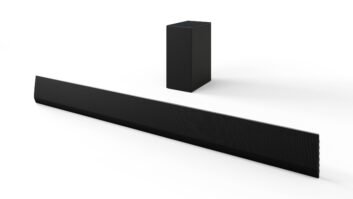When the news broke on President’s Day that Sirius and XM agreed to bury the hatchet and merge, it was a surprise, yet it wasn’t. Of course, buzz about a possible merger has been in the air for months, especially when both Sirius CEO Mel Karmazin and Gary Parsons, XM’s chairman, spoke at a Las Vegas Citicorp conference in January while International CES was being held.
At first glance, the deal looks like a good one for investors. The predatory battle for new subscribers, programming partners and celebrity hosts would be over, and the combined company could begin to focus on reducing its combined $2.4 billion in combined long-term debt.
But how will it affect Sirius and XM subscribers? And how will their manufacturing partners and retailers handle consumer questions with an estimated end-of-2007 timetable being estimated for approval?
The first, most daunting, hurdle will probably be the Federal Communications Commission (FCC). Under the original terms of the sale of broadcast rights by the government, two satellite slots were approved to create competition. A merger is forbidden, which means an FCC rule would have to be changed. FCC chairman Kevin Martin gave every indication merger approval would be tough.
But of course in Washington, rules are made to be broken.
Some analysts point to the Justice Department’s approval of Whirlpool’s acquisition of Maytag, which resulted in giving the combined company more than 50 percent market share, as a hopeful sign for Sirius and XM.
Others cite the failed proposed merger satellite TV rivals DirecTV and EchoStar several years ago. The argument DirecTV and EchoStar made at the time was that it was not going to be a monopoly. It was facing major competition from cable TV suppliers as well as telephone companies who were entering the TV business. The government didn’t buy it.
Talk is that Sirius and XM will argue that they face overwhelming competition from services and technologies other than themselves: iPod and MP3 players, Internet radio and HD Radio. That sounds similar to the satellite TV argument. And the National Association of Broadcasters, the industry group that has plenty of friends in Congress, has already come out against the deal.
Karmazin was quoted as saying he wouldn’t have approached the Sirius board if he didn’t think “there was a 50-50 chance of approval.” You’ve probably read some of the other coverage on this with analysts giving the deal less than that 50-50 chance, or at best slightly better than that.
Meanwhile any satellite radio subscriber you know loves the service. But does the industry have a future with two services that compete?
In all of this talk of mergers, government approvals and the like, two things seem clear:
- The problem for those consumers who were just ready to jump into the market is the old CE bugaboo — confusion. A line like, “If I pick one format over the other with all this merger talk, will I get stuck with the losing format?” has got to been heard by some retailer already.
- Retailers and suppliers who selling satellite radio may be in for a long year as the approval process goes forward.













